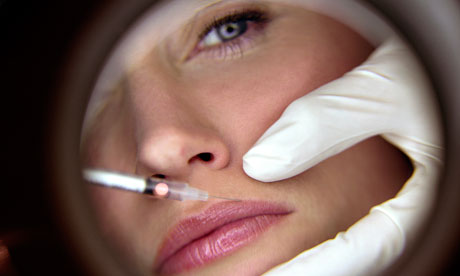
When 20-year-old Claudia Aderotimi jumped on a plane to the US for her buttock implant, it's unlikely that she was aware of the risks associated with the surgery she had booked over the internet. If my research with women and men in the UK who had had cosmetic surgery at home and abroad is anything to go by, Aderotimi would have been feeling confident. This was her second round of surgery and acquaintances had had the same procedure without complications. What could go wrong?
As part of my research into cosmetic surgery tourism, I have interviewed many people who have travelled abroad for such procedures. They think of them as "beauty treatments", not major surgery. They search online for the cheapest option and flight, have their treatment and come home with new breasts or noses. Although my interviewees all attended a brief consultation (on average half an hour) prior to travelling, they hadn't gone armed with medical questions about the surgery. They relied on friends who had already had the operation for information and unsurprisingly, their friends tended to minimise the risks and downplay any post-operative problems that might arise. So great was their trust that one young woman even drove herself home from the airport the day after surgery, against the explicit advice of the surgeon.
Sadly, Aderotimi died in a US hotel after her buttock surgery. Why aren't people more concerned about the medical risks of cosmetic surgery? We are increasingly socialised to believe we must invest in ourselves to improve our life chances and opportunities, whether that means paying for higher education, looks or both.
Most of my interviewees were smart and ambitious young women, but they were not from families that encouraged them to think of higher education as the route into well-paid and satisfying work. They were trying to make their way in sales work and other service sector occupations, and often dreamed of running their own small businesses. Their investment in fake hair, nails, tans and other non-invasive beauty treatments, as well as surgery, was linked to these ambitions. They accepted the individualistic mantra of our times – that success comes to those with "can do" attitudes – and saw investing in their appearance not simply as a way of making the most of themselves, but also of publicly displaying their gumption and nous.
Looking fake shows you have made the investment; it is proof that you have self-respect and, as one young woman put it, "the balls to change your life". Cosmetic surgery was "life changing", but, through their eyes, no more risky than getting a tattoo. Pain was also minimised – described for example as no worse than a miscarriage, but with a more positive outcome. For these young women, the greater risk would be not to look fake. How then could they demonstrate their go-getting initiative or command respect?
There is a huge and increasingly global industry ready to meet demand for surgery from such people. Although comprehensive and reliable data is hard to source, the International Passenger Survey shows that approximately 100,000 UK citizens go abroad each year for medical treatment (a number rising by about 20% annually). How many are travel for cosmetic procedures is difficult to know, but clinics in developing and developed countries advertise in an international market. Often, they draw on the same national and racial stereotypes employed by the tourist industry to do so. Belgian clinics sell themselves to British audiences as being hi-tech, clean, MRSA-free and with expertly trained surgeons, but cheaper than the UK; clinics in India and Thailand claim the same expertise (for instance, their internationally trained surgeons) but far cheaper, and additionally stress both sun, sea, sand, five star tourism facilities and "naturally" caring, friendly nursing staff.
Consumers in this global market often assume that the industry is closely regulated. In reality however, there is no global standard to which clinics must adhere. Even in the UK, there is very little state regulation of clinics providing cosmetic surgery, despite a damning report in 2005 by the Healthcare Commission. The picture is even worse for injectable and non-surgical cosmetic treatments such as Botox. There is growing pressure for tighter regulation, not least from the British Association of Aesthetic Plastic Surgeons, many of whom have experience of repairing botched procedures performed in the UK or abroad.
My interviewees approached cosmetic surgery as consumers, buying teeth from Hungary and breasts from Belgium in a pick-and-mix fashion, searching for bargains in the same way they might when putting together an outfit from the high street. As young people without educational aspirations or opportunities, trying to make their way in a world ever more obsessed with appearance, they sought to advance their project of self-improvement through cosmetic surgery. Unless opportunities are widened and cultural ideas about appearance challenged, young women like Aderotimi will continue to put their lives at risk for a bottom or a breast implant.

